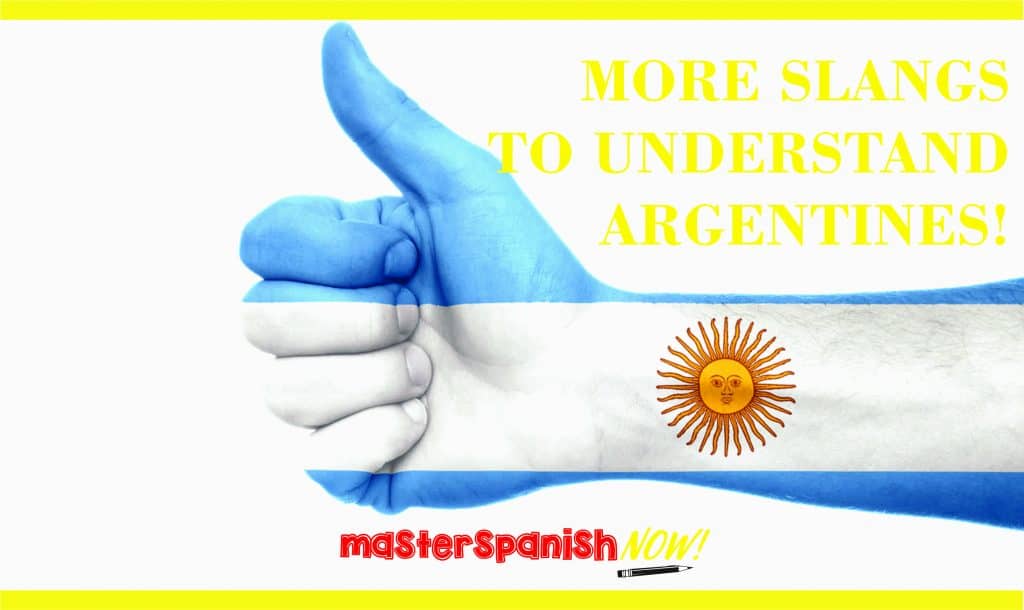As you have probably realized from our recent posts Argentine Slangs you’ll never guess their real meaning and 6 phrases to communicate with locals in Argentina understanding Argentines is not an easy thing, if you consider the long list of lunfardo (slang from Argentina) words that people use everyday for conversation.
We have covered many so far, and in this new post we have compiled 6 more Argentine slang words or phrases for you to continue learning and becoming more familiar with the way true Argentines speak.
1. CHICANA
This word is used to refer to a trap, scheme or trick. It has nothing to do with the Mexican word “chicano”, as it comes from the French “chiqué”, which means trap.
In politics, it is used to refer to a speech that lacks content and whose goal is to attack the adversary.
2. CANA
Although one meaning is “grey hair”, it is used to refer to the police. Nobody’s sure of the origin but it might be connected to the Italian word “incatenare” which means to imprison someone, or to the police from Verona called “canna” (referring to the color of their uniform). There’s another Italian expression called “mettere in canna” which means to put someone in prison.
Another lunfardo to refer to the police is “yuta” (sounding like “shoota”) that comes from a Spanish adaptation of the word “giusta”, which is an Italian word to refer to who applies justice.
Expressions with the word “cana”:
– ¡Ahí viene la cana! = There comes the police!
– Te van a meter en cana = They’re going to put you in jail
– Batir la cana / Mandar en cana = give away someone
– Araca la cana = Expression used to alert when the police is coming.
3. FLASHERO
This word “flashero/a” was at first used to describe people having hallucinations under the effect of drugs. Later, it started to refer to someone says something crazy, weird or that has nothing to do with what’s being said.
4. LA PREVIA
When friends get together, usually at a house, to share some drinks before going clubbing, it is called “la previa”. So if a group of friends have arranged to go out together they may ask: “¿Dónde hacemos la previa?” (Where are we doing the “previa”? The teens may do it to save money on liquor as buying drinks at the supermarket and sharing them in a house is cheaper than buying all the drinks at the club, or they may do it because they are still minors and they wouldn’t be allowed to buy drinks inside the club. Others just do it to share more time with their friends, as clubs in Latin America usually start very late (some people may get inside after 2am)
5. POSTA
The expression “¿Posta?” is used to mean “Really?” when you’re surprised about something you’ve heard, and you want to confirm if that’s true. You can reply to this question by saying: “¡Posta!” which means Really! To confirm that what you’re saying is indeed true.
6. CUALQUIERA
When you want to reject what someone’s saying because it’s stupid or doesn’t make sense, or just because you want to dismissively tell someone is wrong, you can tell them that what they’re saying is “Cualquiera” (it literally means “anyone” but in this expression it is more similar to “nonsense” or “whatever”)
We hope you’ve enjoyed this post!
Want to learn more Argentine Spanish? Book a class with a professional Argentine tutor from our school.

